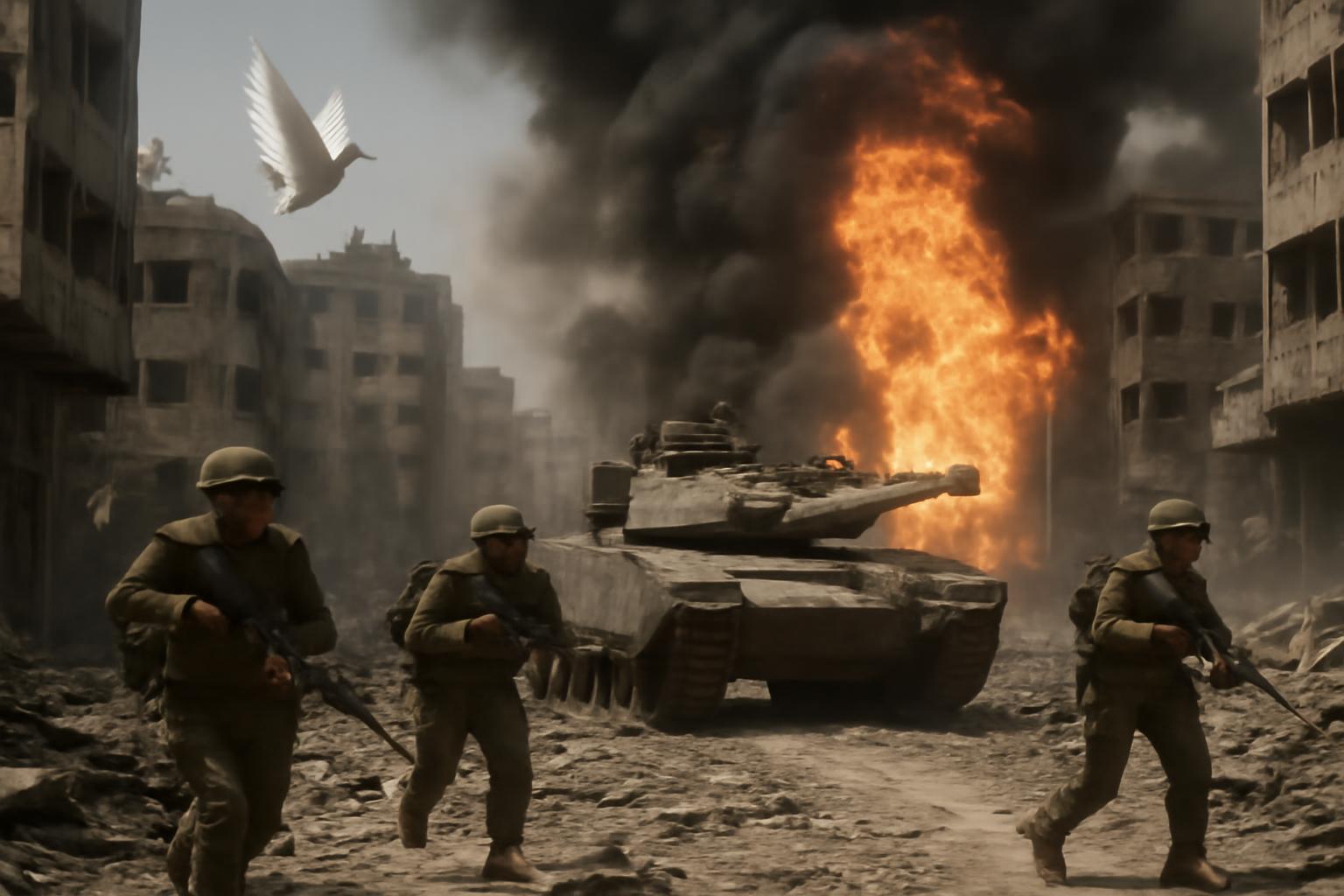Plans approved by Israel to press into Gaza City signal a deliberate, top-down effort to redraw the urban order by means of coercion and military force. The government speaks of relocating residents and of destroying the city if hostages are not freed and if Hamas does not disarm, while talks with Hamas falter and the prospect of a decisive victory against Hamas looms large in political rhetoric. In the background, the humanitarian arithmetic grows grimmer: roughly a million people remain in Gaza City, the consequences of which would be felt not only in the immediate crucible of battle but in the long strains on civilian life and regional stability. The world’s senior diplomat warns of a ceasefire, even as leaders speak of plans to seize the city to defeat Hamas, tying hostage releases to a broader victory over the movement. Indirect negotiations yield no official accord, though there are whispers that Hamas may have accepted a ceasefire proposal elsewhere, and observers wonder whether the expansion of the war is a deliberate pressure tactic. The longer arc is plain: a city’s fate, a people’s survival, and the chance for a stable political settlement are all being weighed against a moment’s tactical advantage.
What we are witnessing is not only a confrontation over who holds power, but a test of the rules that make peaceful cooperation possible when violence is the instrument of policy. The instinct to clear a city, to displace its people, to redefine borders by force, rests on a theory of governance that mistakes coercive capacity for legitimate order. But knowledge is dispersed, local, and tacit; the planners who announce strategic milestones cannot foresee the second-, third-, or fourth-order consequences of such destruction on markets, institutions, and the everyday lives of the very people whom they claim to defend. War, once unleashed, tends to erode the very constraints that make civilization possible: property rights, civil liberties, the rule of law, and the voluntary cooperation that underwrites security. The prospect of turning Gaza City into another Rafah or Beit Hanun is not merely the destruction of a place; it is the creation of a humanitarian catastrophe whose reverberations will outlive any crescendo of military success and harden grievances that spawn future conflict.
Moreover, the insistence that security can be achieved only by compelling disarmament through overwhelming force ignores a deeper political truth: peace cannot be sustained by denying the conditions that give meaning to political existence. Hamas’s position—disarmament only in the presence of a Palestinian state—undoubtedly exposes a fractured settlement path, but it also exposes the fragility of any order imposed solely from the top without secure, legitimate, and inclusive institutions to hold it together. If the objective is a durable peace, the path cannot be a perpetual escalation that treats human beings as least-cost risks on a balance sheet of strategic advantage. A ceasefire, reliable humanitarian relief, and a political framework that acknowledges rights and self-government for both Israelis and Palestinians are not concessions to be traded away in exchange for short-term victories; they are the preconditions for a stable order in which voluntary cooperation—not coercive domination—governs the conduct of neighbors.
To pursue such a path requires humility about what the state can know and control. It requires recognizing that the price system—encoded in markets, prices, and the diffuse knowledge of countless individuals—offers the best mechanism we have for coordinating complex human action under conditions of uncertainty. War substitutes command for spontaneous order, and in doing so it magnifies the very distortions it seeks to counter. If policy makers want a future free of the devastation we see today, they must value restraint over triumphalism, negotiation over coercion, and a framework that protects civilians even as it addresses security concerns. The appeal to inevitability—that a decisive military move will secure lasting safety—must be checked by the acknowledgment that lasting safety arises not from the conquest of a city but from institutions that respect the dignity, rights, and agency of all people who inhabit the land. The road to peace lies not in the annihilation of a city, but in a settlement that binds together security, liberty, and a shared sense of lawful order.
